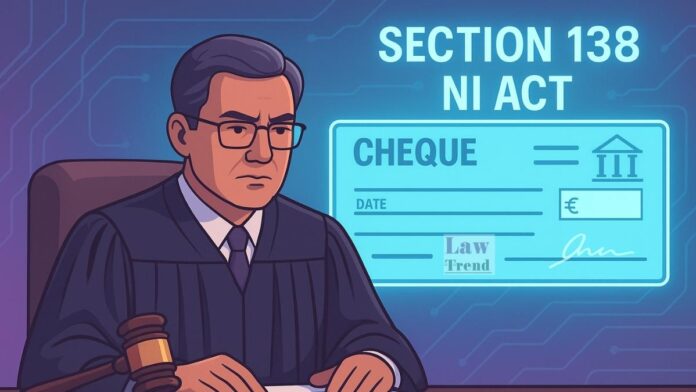The Madurai Bench of the Madras High Court has affirmed that a cheque issued for the repayment of money originally paid to illegally secure a public service job is not considered to be for a “legally enforceable debt or liability.” Consequently, the dishonour of such a cheque does not attract the offence under Section 138
To Read More Please Subscribe to VIP Membership for Unlimited Access to All the Articles, Download Available Copies of Judgments/Order, Acess to Central/State Bare Acts, Advertisement Free Content, Access to More than 4000 Legal Drafts( Readymade Editable Formats of Suits, Petitions, Writs, Legal Notices, Divorce Petitions, 138 Notices, Bail Applications etc.) in Hindi and English.




